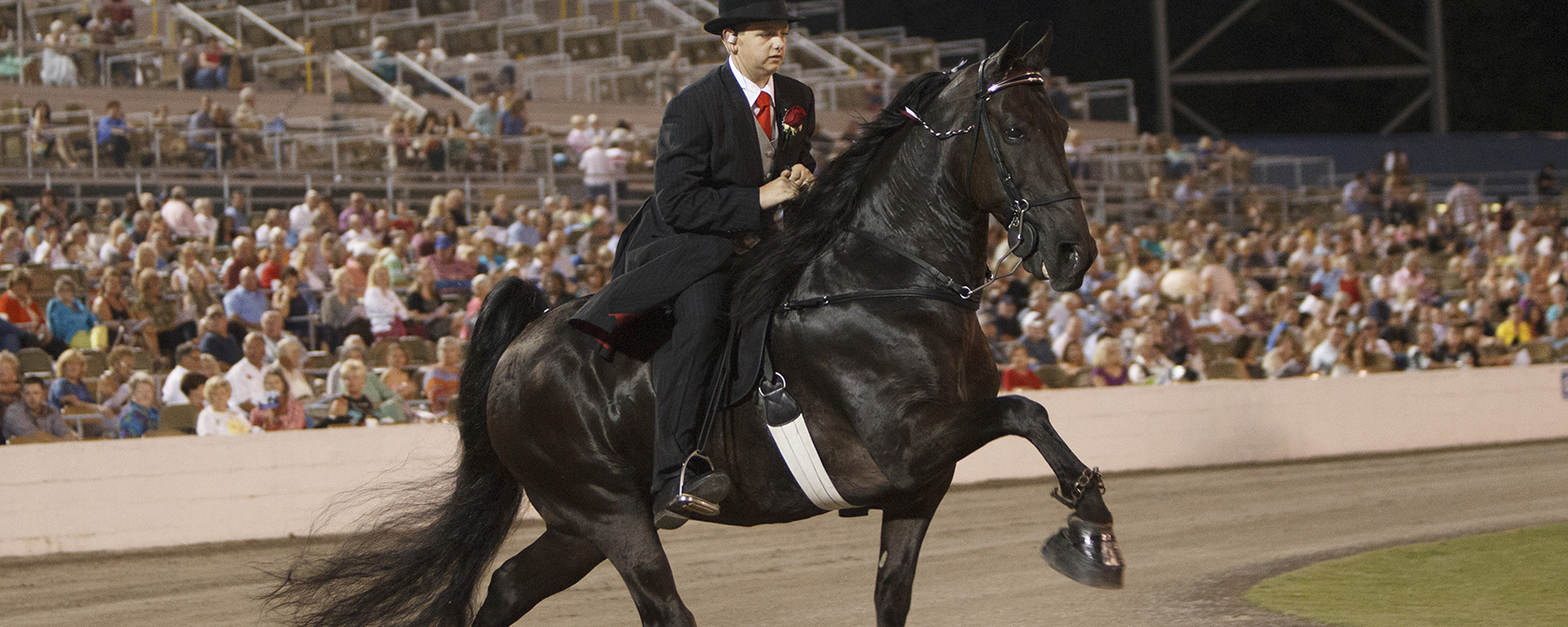By Sara Amundson and Kitty Block
From the perspective of public policy, there are certain cruelties that seem to hang around forever, even when their depravity is abundantly evident, defying―in a way―the political equivalent of gravity. Horse soring, which involves the very intentional infliction of pain and suffering on Tennessee walking horses and related breeds in the show world, is just that kind of cruelty.
That’s why we’re delighted that the U.S. Department of Agriculture has announced a final rule to stop this strange, persistent and deeply disturbing cruelty that has survived more than a half century’s legislative attempts to suppress it. We’ve been petitioning the USDA for regulatory reform on this issue for over a decade and pressing hard for this rule. We worked to make sure it was a good one, meeting with the USDA and administration officials to discuss it numerous times and building a strong coalition of support for it.
In a huge win, the new rule bans the use on Tennessee walking and racking horses of devices and substances integral to soring, including tall, high-heel-like horseshoes (known as “stacks”) and chains that bang against a horse’s chemically sored ankles, all used to cause excruciating pain. The rule also assigns sole responsibility to the agency’s Animal and Plant Health Inspection Service to screen, train and authorize inspectors, and creates an inspection system that relies on veterinarians, veterinary technicians or others employed by government agencies to enforce relevant laws and regulations. We believe that the rule puts the government on a much stronger footing to finally eliminate soring.
For decades, the perpetrators of soring and their defenders and apologists, including some elected officials, have protected this abuse from scrutiny and proper enforcement action, with a “wink and a nod” strategy that prevents anti-soring legislation from advancing in the U.S. Congress. Despite robust co-sponsorship numbers for the Prevent All Soring Tactics (PAST) Act (S. 4004/H.R. 3090 in the current Congress) that consistently exceed a majority in both the House and Senate, soring’s allies quietly find ways to block enactment of that needed legislation.
Because they do so, we have redoubled our efforts to address the weak regulations that led to introduction of the PAST Act in the first place. We’ve worked to mobilize equestrians in support of tougher rules, and we’ve confronted the sorers at their main annual event, the Celebration. We’ve also delivered the goods on soring’s cruelty through undercover investigations. The HSUS investigation of Hall of Fame trainer Jackie McConnell led in 2012 to the second-ever convictions, for both misdemeanor and felony violations, under the Horse Protection Act, as he and his training barn associates were convicted for applying caustic chemicals to horses’ legs, then illegally transporting the animals to horse shows and falsifying records. Then, in 2015, at another prize-winning training barn, HSUS investigators documented similar practices, the slathering of burning chemicals onto the legs of horses, causing them great and prolonged pain, and all for a few show ribbons and a moment’s glory.
Through it all, we’ve never given up the public policy fight. The things we’ve argued for, things that are in the new rule, have been validated by the USDA’s own actions over the last decade and a half. For example, it was the USDA’s Inspector General audit report of the agency’s horse protection program in 2010 that called for an end to industry self-policing, a reform the USDA agreed back then to pursue. In the intervening years, the agency has put the industry on notice on multiple occasions that unless it embraced genuine reform on its own, the USDA would take action to eliminate the industry self-policing and the stacks and action devices that facilitate soring and exacerbate animals’ pain.
Additionally, in the new rule, a horse can be considered sored if there is evidence of soring-related injuries on at least one leg. The rule requires that the forelimbs and hindlimbs of the horse must be free of skin conditions such as irritation, moisture, hair loss and edema that indicate a history of soring. And the rule prohibits licensing as a Horse Protection Inspector anyone who has been convicted or found to have violated any part of the Horse Protection Act or its regulations, has been assessed any fine or civil penalty under it, or is the subject of a disqualification order.
The battle to end soring has taken a long time, but we’ve stuck with the fight and we’re optimistic that more humane treatment of horses is coming with the implementation of this final new rule. We’ve been working, both of us, on a host of other cruelties we didn’t expect to see an end to during our careers. But we did see them end, or at least, we have seen the beginning of the end. Elephant performances at major circuses. Dog meat farming in South Korea. The breeding of orcas for performance at captive entertainment facilities. The use of chimpanzees in the laboratory. The private possession of primates. We made these things happen through hard work. We never stopped fighting to secure and establish those gains permanently. They are momentous achievements, and they continue to motivate us in our everyday work and personal lives. One day, when it’s gone, we’ll speak of horse soring in the same way.
Kitty Block is CEO of the Humane Society of the United States.




